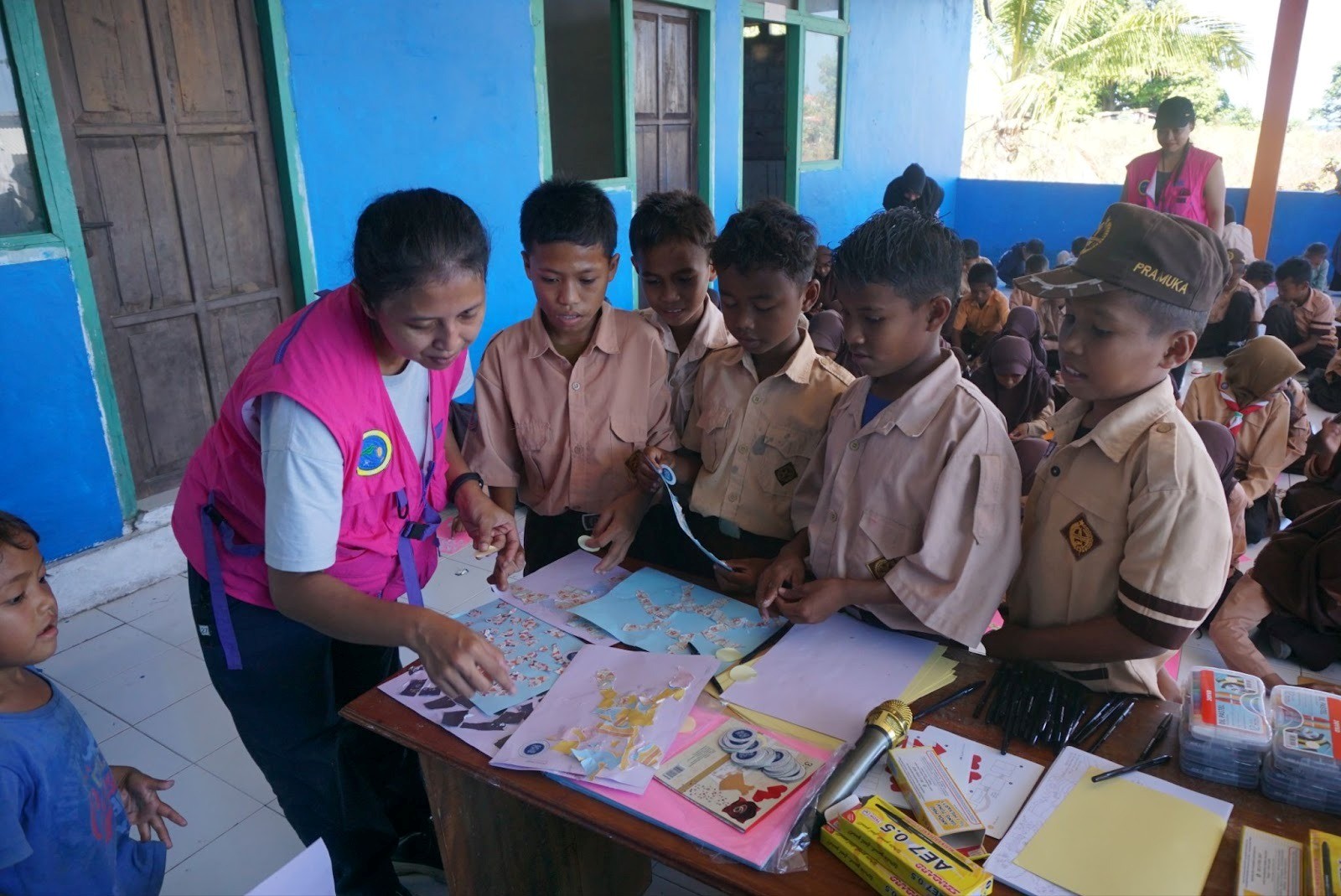Empowering Blacksmith Village Artisans in Mekarmaju Village, Collaboration of ITB and Ministry of Industry Produces Hoe Complied with SNI
By Adi Permana
Editor Adi Permana
BANDUNG, itb.ac.id-Institut Teknologi Bandung (ITB) and the Ministry of Industry collaborate to empower the artisans of the Blacksmith Village in Mekarmaju Village, Pasirjambu District, Bandung Regency. Hoes complied with Indonesian National Standard (SNI) were produced for small and medium industrial production. This agricultural tool product is expected to answer the tool's availability issues in Indonesia by having SNI. It is also expected to penetrate a broader market.
The development of the artisan's capacity and the tool's quality has been under Institute for Research and Community Services (LPPM) ITB program since 2015. Together with the Ministry of Industry, this blacksmith village later became a pilot project for small and medium-sized enterprises which produce tools that complied with SNI for the first time in Indonesia.
ITB scientist from the Metallurgical Engineering Research Group, Faculty of Mining and Petroleum Engineering, Dr. Eng Akhmad Ardian Korda, stated that ITB contributed from aligning SNI to helping artisans improve product quality to meet SNI requirements. "We help in making and repairing several amendments (SNI). The Ministry of Industry has also asked for our help in checking the existing hoes and other tools," said Dr. Korda in Mekarmaju Village, Bandung Regency, Wednesday (6/10/2021).
Dr. Korda explained that SNI requirements are not only related to the dimensions of agricultural equipment. There are also quality requirements related to the chemical composition of the steel used and the mechanical properties of the hoe.
"We enter in that area because technologically, the making of hoes here is done in a simple way. They need to know the treatment to achieve the mechanical properties with the chemical composition that we require. We guide from the scientific methodology side that we used to do to provide the knowledge. Thus, the small and medium industry here know how to make a hoe according to the quality requirements requested by SNI," Dr. Korda explained.
Dini Hanggandari, as Director of Metal, Machinery, Transportation Equipment, and Electronics, stated that her company continues to empower the small and medium industry centers to have high competitiveness. "We need to do it step by step, while the Ministry of Industry can not do it alone. We have to partner, one of which is with ITB," she claimed that when visiting the artisans in Mekarmaju Village and inaugurating the MBKM ITB program. At that time, she was accompanied by the Community Service Secretary at LPPM ITB Deny Willy Junaidy, Ph.D.; Dr. Korda; and local village officials.
Dini stated that the collaboration with ITB was an essential part of increasing the artisan's capacity and the product's quality. "With ITB, especially them from Metallurgical Engineering, processing can be assisted, starting from material content, temperature, processing, to achieve the level of hardness according to the desired standard," she emphasized.
Dini stated that the opportunity for the small and medium industry center's products to penetrate the market is better by having SNI. "Previously, we imported many hoes, but we do not want to let it so as our industry in producing hoes already exists. However, we must meet the standards, so we held various programs: artisans training, tools providing, even online and offline markets opening," she explained.
Consistency
Community Service Secretary at LPPM ITB Deny Willy Junaidy, Ph.D., stated that program consistency is vital in determining program targets. "We initially focused on training for several years. Mr. Korda trains on material processing so that the levels are stable and the quality is good."
The success of Mekarmaju Village as a small and medium industry center in producing SNI products excessed the target, and Deny recognized it. "After several years, they are deemed qualified to make a hoe complied with SNI. This outcome is beyond the initial target," he revealed.
Furthermore, he explained that in every LPPM ITB Community Service program, the main expected impact is an increase in community independence and welfare by applying appropriate science and technology.
"One of the programs implemented is a top-down program. In this program, lecturers who have many experiences and track records are assigned. Selection is made using a criterion of consistency at a certain point to build continuity. We choose those who have the same topic before. This also underlies the community service program for the assisted villages," he said. (*)
Source: LPPM ITB Release
Translator: Zahra Annisa Fitri (Urban and Regional Planning, 2019)

.jpg)
.jpg)


.jpg)



